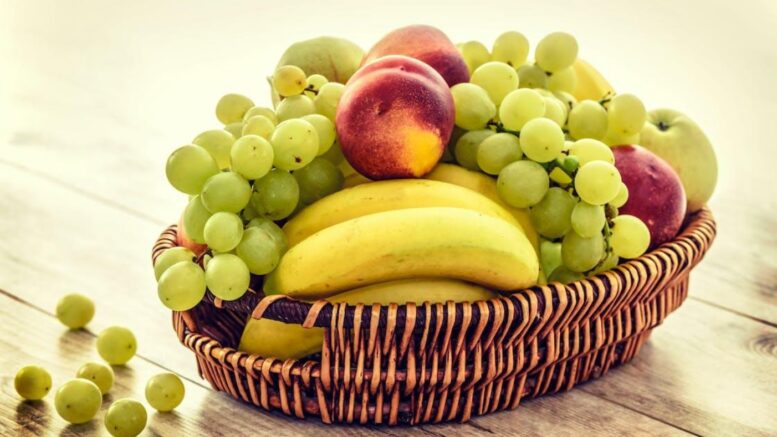Proper nutrition is foundational to maintaining health, vitality, and overall well-being. The key components of a balanced diet often include a strong emphasis on fruits and vegetables. They are rich in essential vitamins and minerals and provide necessary fibers and antioxidants, which help fight various diseases. Here, we discuss how incorporating a wide variety of these nutrient powerhouses can profoundly influence daily health.
The Essential Role of Fruits and Vegetables
Fruits and vegetables play several critical roles in daily dietary habits. They contribute to various bodily functions, aiding from digestion to skin health.
A Broad Spectrum of Nutrients
Each vegetable and fruit offers a unique profile of nutrients. For instance, oranges provide abundant Vitamin C, while spinach offers rich Vitamin K and iron. Ensuring a colorful plate often covers a broad spectrum of dietary needs.
Natural Fiber Providers
Fiber is essential for proper digestive health, and fruits and vegetables are some of the best sources. Apples, bananas, carrots, and broccoli are all fiber-rich choices that can help regulate digestive systems and maintain weight balance.
Antioxidants and Their Benefits
Antioxidants such as beta-carotene and vitamins A, C, and E in fruits and vegetables can combat the free radicals contributing to aging and chronic conditions. Blueberries, strawberries, and kale are the top carriers of these vital antioxidants.
Daily Recommendations and Consumption Patterns
According to nutritionists, adults should aim for at least 5 servings of fruits and vegetables daily. Here is how a typical daily intake could look:
Daily Intake Table
| Meal | Fruits | Vegetables |
| Breakfast | Banana; Blueberries | Spinach; Tomatoes |
| Lunch | Apple | Kale; Carrots |
| Dinner | Grapes | Broccoli; Peppers |
Choosing diverse options ensures a broader intake of nutrients.
Challenges to Adequate Consumption
Despite the clear benefits, many find it challenging to meet these daily recommendations. Busy schedules, limited access to fresh produce, and preferences for processed foods often detract from an ideal intake of these essential food groups.
Integrating More Fruits and Vegetables
To enhance your daily intake, consider integrating fruits and vegetables in creative and achievable ways:
- Smoothies: Blend a combination of fruits and vegetables for a quick and nutritious snack.
- Snack Replacement: Opt for carrot sticks or an apple instead of processed snack options.
- Creative Cooking: Incorporate vegetables into dishes like pasta sauces, omelets, and even desserts.
By including fruits and vegetables in every meal, maintaining a balanced diet becomes more manageable and effective.
Impacts of Failing to Consume Adequately
Ignoring the consumption of sufficient fruits and vegetables can lead to deficiencies and health risks:
- Lower immunity
- Digestive issues
- Increased risk of chronic diseases
Addressing the shortfall with effective dietary choices is fundamental for long-term health.
Convenient Solutions for Busy Lifestyles
Supplementary options are available for those struggling to maintain adequate fruit and vegetable intake. Products that ensure you meet your daily nutritional requirements without the preparation time that whole foods entail can be particularly beneficial. A reliable choice in the realm of dietary supplements is provided by Balance of Nature, offering a no-fuss approach to boosting daily nutritive intake.
Fostering Healthier Dietary Habits
Encouraging the consumption of fruits and vegetables is not just about overcoming short-term nutritional gaps; it’s about building healthy long-term eating habits. Educating children and adults alike on the importance of these food groups is crucial. Health initiatives and policies should aim to increase public access to fresh produce, especially in underserved communities.
Stepping Towards a Healthier Future
With a clear understanding of the impactful role fruits and vegetables play in our daily lives, and the challenges faced in incorporating them into modern diets, it is evident that actionable steps are necessary. We must prioritize their intake through direct consumption or supplementary means to harness their full health benefits, thereby stepping towards a healthier future for individuals and communities.
Article edited and fact checked by our editorial team.
References:
- Forster H, Walsh MC, O’Donovan CB, et al. A Dietary Feedback System for the Delivery of Consistent Personalized Dietary Advice in the Web-Based Multicenter Food4Me Study. J Med Internet Res. 2016 Jun 30;18(6):e150. doi: 10.2196/jmir.5620.
- Slavin JL, Lloyd B. Health benefits of fruits and vegetables. Adv Nutr. 2012 Jul 1;3(4):506-16. doi: 10.3945/an.112.002154.
- Wallace TC, Bailey RL, Blumberg JB, et al. Fruits, vegetables, and health: A comprehensive narrative, umbrella review of the science and recommendations for enhanced public policy to improve intake. Crit Rev Food Sci Nutr. 2020;60(13):2174-2211. doi: 10.1080/10408398.2019.1632258.
